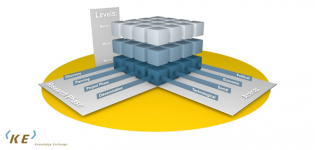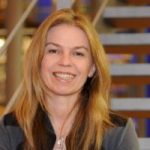I attended the Knowledge Exchange (KE) Workshop in Paris end of September 2017. KE recently released a framework on open scholarship (in a way this is a framework on open research). This picture gives an easy summary of what the framework proposes.

As Cameron Neylon (the main author of the paper) phrased it at the workshop: “we are all the time talking about different actors, mechanisms, granularity and motivations”. And that’s why some of our actions do not land, or some of our discussions are not understood. The framework is work in progress, and is meant to help organise and assess the coverage of existing and proposed future work of Knowledge Exchange and others. In the workshop we further discussed the possible actions the group could undertake the coming year-and-a-half on two strands, i.e., economy of open science; and outputs and evaluation from the researcher’s perspective.
I was invited to say something about this researcher’s perspective. And that was a good opportunity to tell something about a project on open research we have been involved in as TU Delft Library.  We call it AIDA (automatic identification of research trends). Our head of research support, Alenka Princic, has been working together closely with research staff at our own university and CWTS Leiden. One of the things we have been doing here is to “behave like a researcher” in our tools setting. So we collected data, combined and analyzed it to provide evidence and added some modelling.
We call it AIDA (automatic identification of research trends). Our head of research support, Alenka Princic, has been working together closely with research staff at our own university and CWTS Leiden. One of the things we have been doing here is to “behave like a researcher” in our tools setting. So we collected data, combined and analyzed it to provide evidence and added some modelling.
Our Research Analytics toolbox is a collection of databases (literature, patent, funding, ..) and analysis & visualisation tools. The integration and adaptation of all tools enable mapping of research disciplines, mapping of collaborations, or analysis of research trends (and more) in a more automatic way (compared to tedious manual analysis). Theresults are presented in a user-friendly interface.
The link guides you to an example of the analysis and visualisation of the open access zone in a particular academic community (here, microbiology of wastewater resource recovery). However, many other questions can be answered, and by doing so we can support the researchers to be open, but also to help them with many other research analytics.
In our belief we should treat open science (or open research) as something that should be normal and embedded in your practice. We want to acknowledge that for research to be successful each teamplayer counts, all outputs and the process of research is relevant, different disciplines have their own rules of the game and that tools are necessary to support this.
Evaluating this is important, is needed, and should be done. However, this should not become a means in its own.





